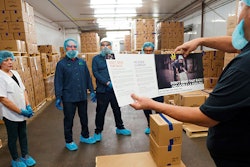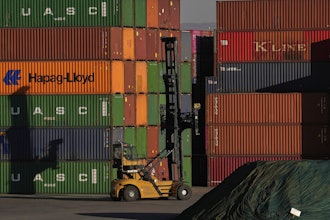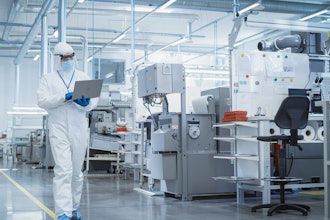Manufacturing is more sophisticated than ever. Long gone are the days when a worker could be expected to immediately learn the technical expertise necessary to ensure that machinery and other business processes are functioning properly.
The Industrial Internet of Things, Industry 4.0, M2M: Smart manufacturing has arrived. Although there is a shift from workers to automated processes handled by robots, there is still a critical need for an informed and well educated worker.
Manufacturers have entered an era when the ability to quickly respond to changing market conditions is a prerequisite for success. When consumers have potentially thousands of options they may choose for an automobile, when make-to-order is often the preferred method of manufacturing, the need for employees with specialized skills is often the difference between operating efficiently and falling further behind more agile competitors.
Automation and robotics, in particular, have transformed manufacturing processes into more intelligent approaches. Filling the gap in strategic capabilities has become a constant in the effort to create a nimble yet capable workforce.
It’s for those reasons that manufacturing industry leaders need to be supported by industrial service specialists. Companies with specific specialized skills needed to optimize process flows and keep downtimes to a minimum, enable an OEM to benefit from higher productivity and increased efficiency. Hiring specialists allows the manufacturer to focus on their core business while confident that their technology needs – whether facility services or supply chain services – are being adequately met.
Contractors can be targeted to provide the skill-set required that the manufacturer lacks. Hiring a third party service specialist eliminates the need for creating strategies and concepts that deviate from their core business. Service specialists ensure that the OEM can quickly respond to orders and be flexible enough to pivot when the market and consumer demand takes a sudden turn.
Manufacturers transitioning to a digital environment are well prepared for digitization in their core businesses but regarding their subsidiary processes there’s still a large untapped potential – especially regarding automation or data collection for process optimization. Engaging experts with the specific experience to guide the transition can not only ensure the project is properly undertaken, but can train existing staff in the nuances necessary to function efficiently in the new environment.
A recent example of contracting with a company providing highly skilled experts was for the installation of the proper technology solution at a major automotive OEM facility in the US. This assembly facility required modifications to the paint shop in order to meet stringent environmental requirements.
Each component of the automobile is assembled in the same location in a just-in-time process. The target was to have only two hours of inventory in stock. An automated system replenishes needed inventory in an immediate fashion.
Third party specialists designed and relocated skid stackers to create an additional buffer in the body-to-paint system. The most challenging portion of the project was making major changes to how the car bodies were transferred from the body shop to the paint shop. The project required removing the cumbersome, multi-station, overhead body transfer process and condensing it to a simpler, more compact process reducing the cycle time. In order to accomplish this and for skids to be routed properly, they had to rearrange and modify the existing supply conveyor, extend the third-level mezzanine, and create a new empty skid return on a new lower level.
The project included a new six-segment master electrical control panel, two new remote electrical panels, and modifications to three other existing remote electrical panels. All of these solutions required skills and experience that the OEM didn’t focus on in their own teams because they had other tasks to do.
In another outsourced case the third party was an electrical contractor hired for specific electrical work in a US plant. The industrial services provider was responsible for lighting and socket circuit installations for the work deck areas in the paint shop. This included approximately 5,500 feet of cable tray, Profinet cable, lighting and socket cables, grounding cables and conduit. They installed grounding cables, ground connections and ground bars and the installation of nine lighting panels and eight socket panels. They did the hard wiring and connecting of up to 130 sockets for the area.
An external company relocated the entire equipment array in the relocation of an OEM from Alabama to Mexico. They continue to work with their customer locations to identify potential projects to relocate equipment between the customers’ world-wide sites.
Another example of a specific technical skill that is critical is in the area of technical cleaning. Hiring a third party to provide that technically challenging service when necessary helps manufacturers operate more efficiently and keep costs manageable.
Leadec has developed processes which have proven to be effective and reduce environmental impact. For example, a paint shop, in order to function most effectively, must be kept in a pristine state. One special procedure for cleaning sensitive robots is to use dry ice which removes dirt and contamination but doesn’t endanger any of the sensitive equipment.
Leveraging modern service providers enables manufacturers to rapidly update existing processes with more modern variants and provides the flexibility to quickly engage when necessary, and disengage when market conditions require it.
Third party resources providing production services as well as facility services and supply chain services helps to make production plants more agile, nimble and able to adopt emerging technology quickly.
Speed of innovation is a competitive differentiator in the global marketplace. Hiring specialists from third party firms can optimize a company’s operations and help maintain market leadership.
William Bell is CEO of Leadec US.























